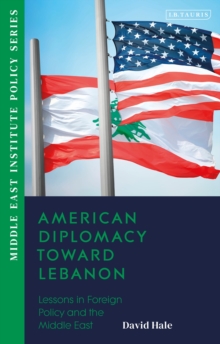
Energy Transitions in the Middle East : Challenges and Opportunities EPUB
Edited by Wolff Katherine Wolff, Young Karen E. Young
Part of the Middle East Institute Policy Series series
EPUB
Description
How do Middle East energy transitions fit into international energy markets? In this book, energy analysts, geopolitical experts and specialists of political economy examine the new energy potential in the Middle East. The particular focus surrounds how the region's access to finance, combined with the new global regulations and considerations of economic development, shape the region's energy transitions overall.
The Middle East is revealed to be a key site of new energy production, sharing and transmission as well as technology innovation. At the same time, the authors examine the variables that determine the success in each country and energy source, including the advantages that hydrocarbon producers will have in renewables and transition fuels, and the risk that these might slow down the energy transition overall. In doing so, the book situates the energy transition in the Middle East in a broader context of economic development, financing models, and regulations, and explains how this context interacts with the development of new energy sources.
Energy Transitions in the Middle East is an account of the challenges Middle Eastern states will face in navigating the global energy transition, as well as their key areas of opportunity.
Information
-
Download - Immediately Available
- Format:EPUB
- Pages:328 pages
- Publisher:Bloomsbury Publishing
- Publication Date:25/01/2024
- Category:
- ISBN:9780755650408
Information
-
Download - Immediately Available
- Format:EPUB
- Pages:328 pages
- Publisher:Bloomsbury Publishing
- Publication Date:25/01/2024
- Category:
- ISBN:9780755650408










